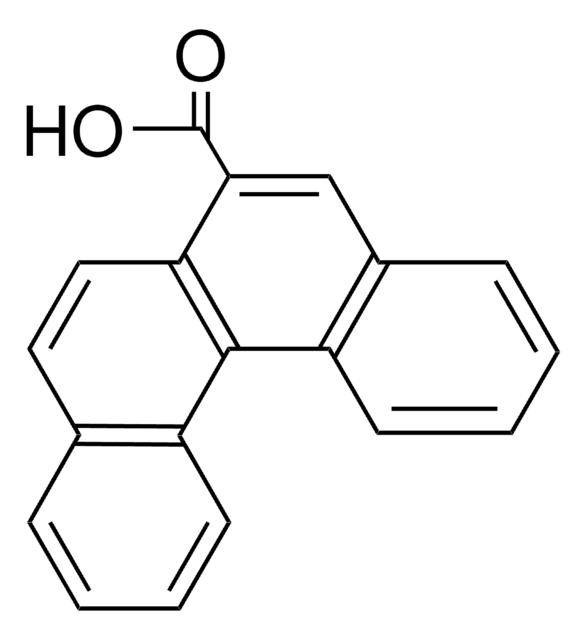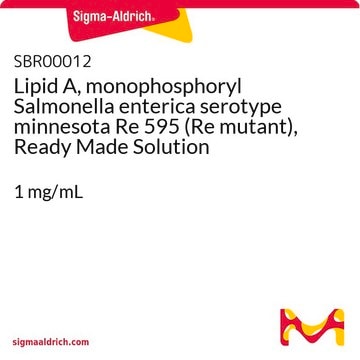SML0050
CGP 37849
≥98% (HPLC)
Sinónimos:
(3E)-2-Amino-4-methyl-5-phosphono-3-pentanoic acid
Seleccione un Tamaño
80,50 €
Seleccione un Tamaño
About This Item
80,50 €
Productos recomendados
Ensayo
≥98% (HPLC)
Formulario
powder
condiciones de almacenamiento
desiccated
color
white to beige
solubilidad
H2O: ≥2 mg/mL (warmed)
temp. de almacenamiento
2-8°C
cadena SMILES
C\C(CP(O)(O)=O)=C/C(N)C(O)=O
InChI
1S/C6H12NO5P/c1-4(3-13(10,11)12)2-5(7)6(8)9/h2,5H,3,7H2,1H3,(H,8,9)(H2,10,11,12)/b4-2+
Clave InChI
BDYHNCZIGYIOGJ-DUXPYHPUSA-N
Aplicación
Acciones bioquímicas o fisiológicas
Código de clase de almacenamiento
11 - Combustible Solids
Clase de riesgo para el agua (WGK)
WGK 3
Punto de inflamabilidad (°F)
Not applicable
Punto de inflamabilidad (°C)
Not applicable
Elija entre una de las versiones más recientes:
Certificados de análisis (COA)
¿No ve la versión correcta?
Si necesita una versión concreta, puede buscar un certificado específico por el número de lote.
¿Ya tiene este producto?
Encuentre la documentación para los productos que ha comprado recientemente en la Biblioteca de documentos.
Filtros activos
Nuestro equipo de científicos tiene experiencia en todas las áreas de investigación: Ciencias de la vida, Ciencia de los materiales, Síntesis química, Cromatografía, Analítica y muchas otras.
Póngase en contacto con el Servicio técnico








